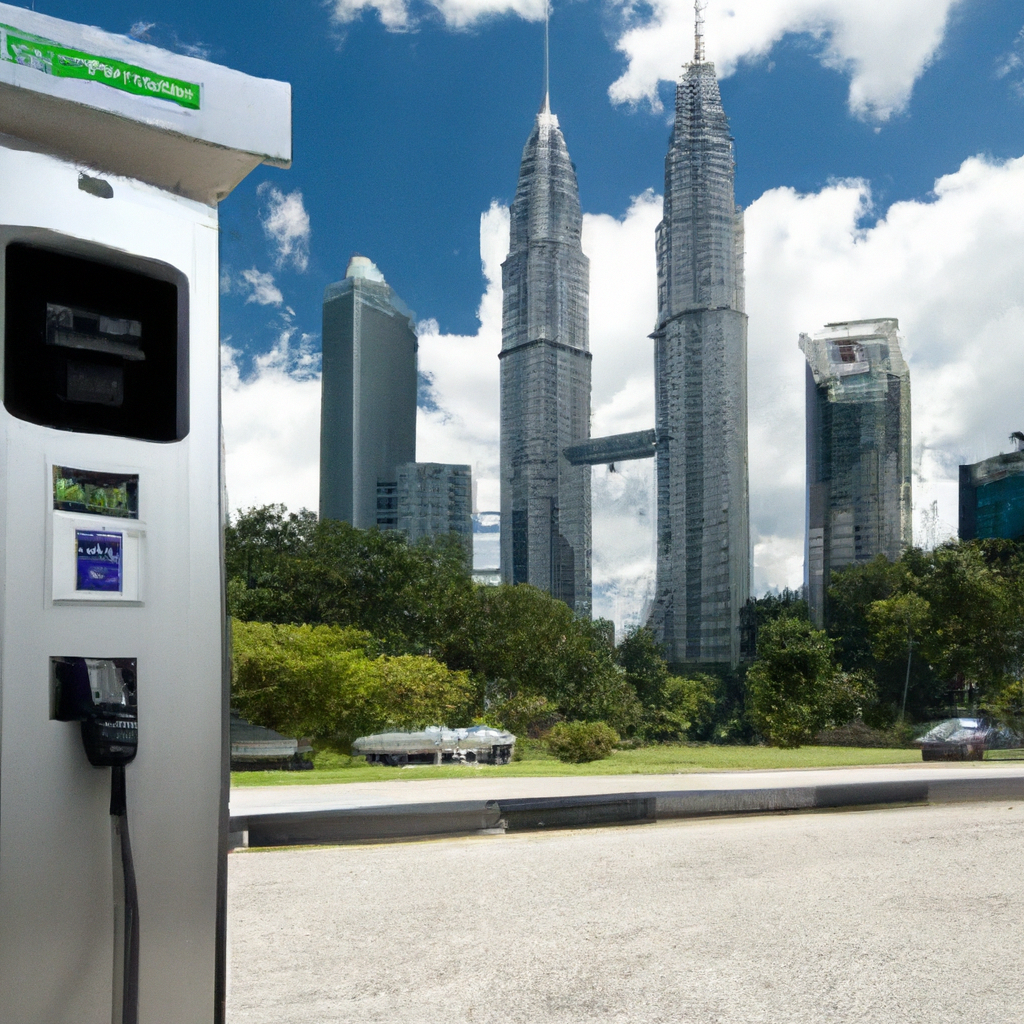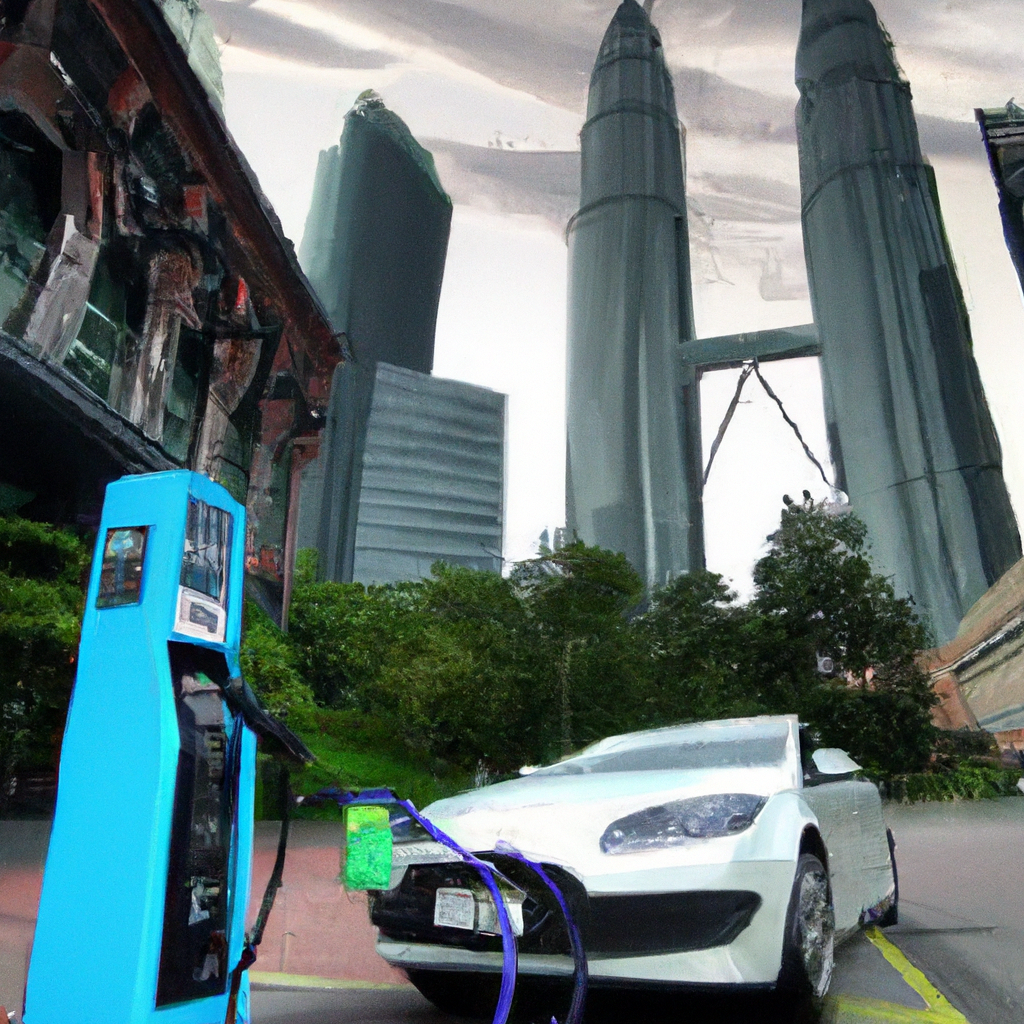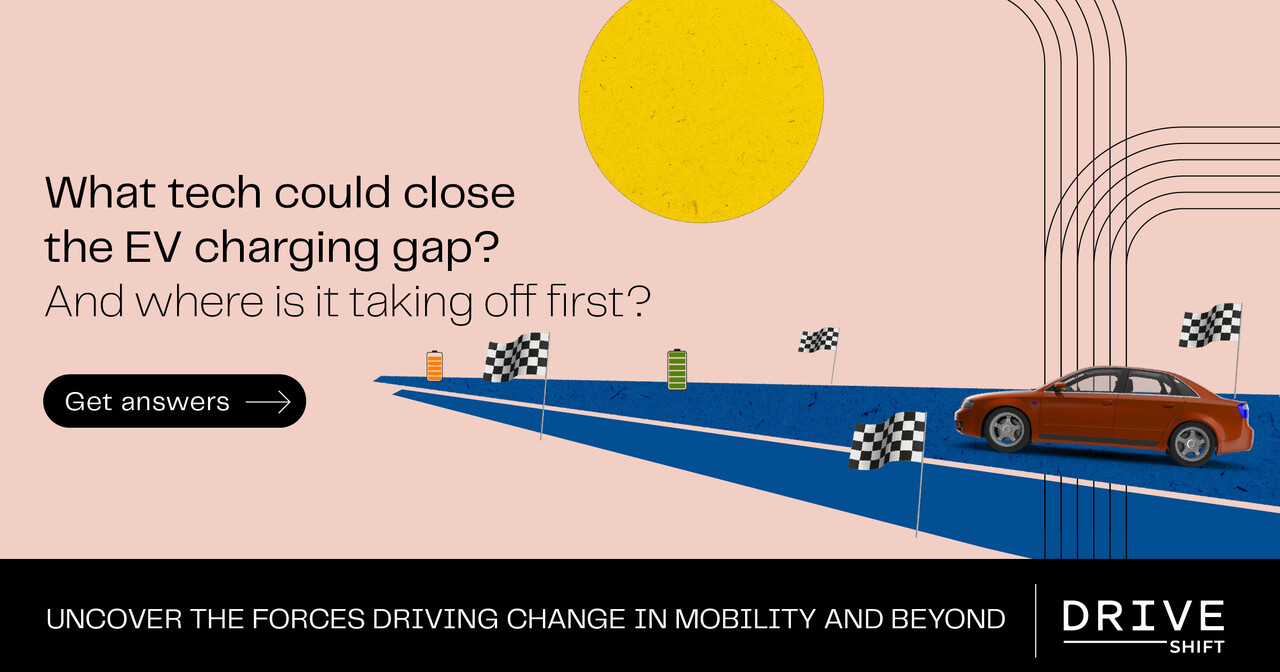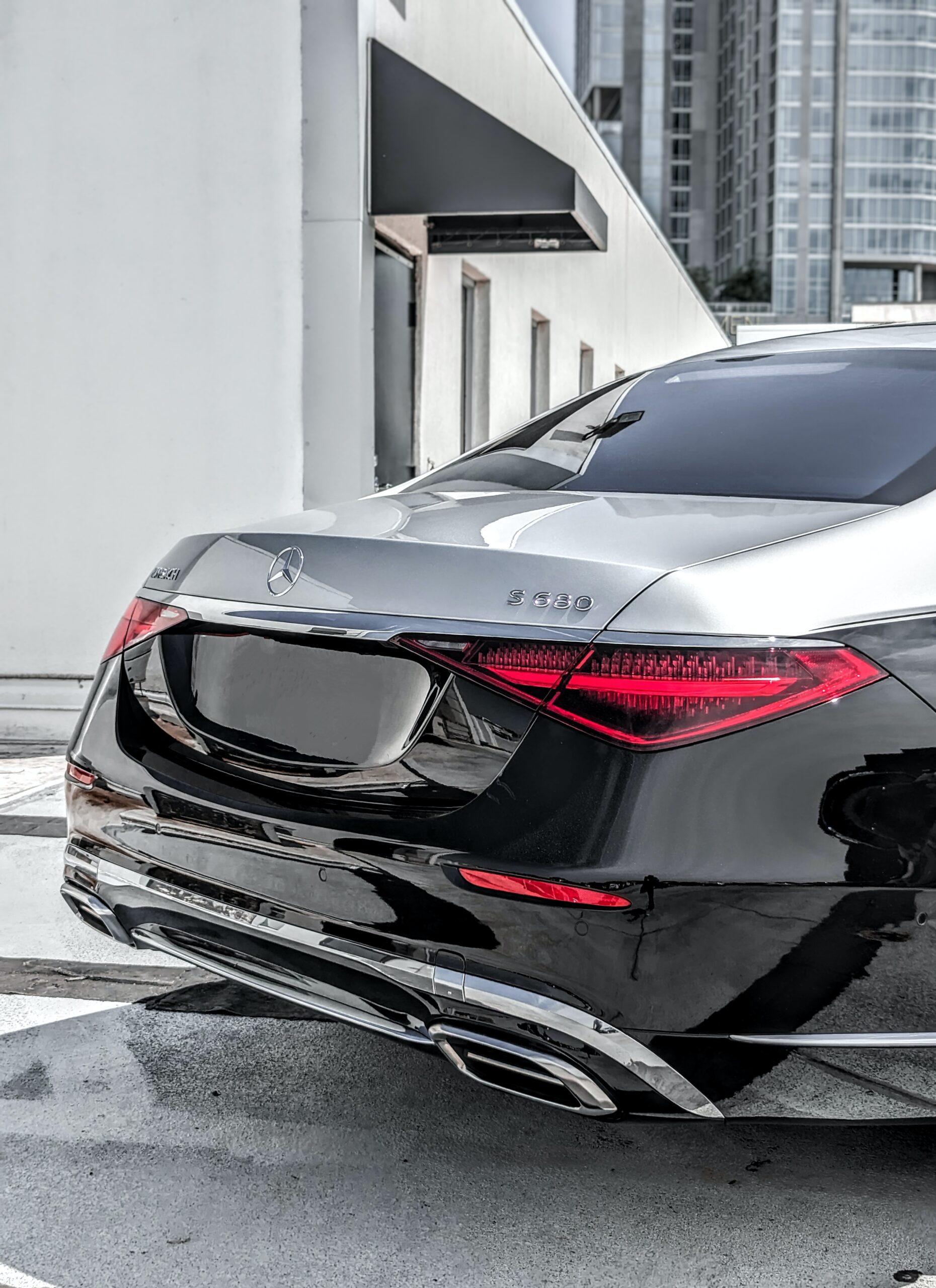How Can I Calculate The Charging Time For My Electric Vehicle In Malaysia?
October 7, 2023 | by Jacob Kang

Have you recently acquired an electric vehicle in Malaysia and are wondering about the charging time? Understanding the charging time for your electric vehicle is crucial to effectively plan your journeys and ensure you have enough power to get you where you need to go. In this article, we will explore various factors that can affect the charging time of your electric vehicle, providing you with valuable insights to help you make the most of your EV charging experience in Malaysia. So, let’s dive in and discover how you can calculate the charging time for your electric vehicle in Malaysia!

Factors Affecting Charging Time
Charging an electric vehicle (EV) is a crucial aspect of owning one. The time it takes to charge your EV can vary depending on several factors. It’s important to understand these factors to effectively plan your charging needs. The three main factors that affect charging time are battery capacity, charging power, and charger efficiency.
Battery Capacity
The battery capacity of an EV refers to the amount of energy it can store. It is measured in kilowatt-hours (kWh). The higher the battery capacity, the more energy it can store, which ultimately affects the charging time. A larger battery capacity will typically take longer to charge compared to a smaller one.
Charging Power
Charging power plays a significant role in determining the charging time of your EV. It refers to the rate at which energy is transferred from the charging station to your vehicle’s battery. Higher charging power results in faster charging times, while lower charging power translates to longer charging times.
Charger Efficiency
The efficiency of the charging station also affects the overall charging time. Charger efficiency refers to how effectively the charging station can convert the energy it draws from the power grid into usable energy for your EV. A charger with higher efficiency will require less energy from the grid and shorten the charging time. It’s important to choose a charger with good efficiency to optimize your charging experience.
Understanding Battery Capacity
In order to calculate the charging time for your EV, it is important to understand the concept of battery capacity. Battery capacity is measured in kilowatt-hours (kWh). It indicates the amount of energy the battery can store and subsequently power your vehicle. The higher the battery capacity, the more energy it can store and the longer it will take to charge.
Another important aspect to consider is battery range and consumption. Battery range refers to the distance your EV can travel on a full charge. It is influenced by various factors such as driving conditions, speed, and climate control usage. Battery consumption, on the other hand, refers to the amount of energy your EV uses per kilometer or mile. Understanding these factors will help you gauge your charging needs and estimate the required charging time.
Determining Charging Power
To accurately calculate the charging time for your EV, you must consider the charging power. Charging power refers to the rate at which energy is transferred from the charging station to your vehicle’s battery. It is measured in kilowatts (kW). The charging power impacts the overall time it takes to charge your EV.
Types of Charging Stations
There are different types of charging stations available for EVs. These include Level 1, Level 2, and Level 3 charging stations. Level 1 charging stations are typically used for home charging and provide the lowest charging power. Level 2 charging stations offer a higher charging power and are commonly found in residential areas and public spaces. Level 3 charging stations, also known as DC fast chargers, provide the highest charging power and are usually found along highways or at dedicated charging stations.
Charging Power Levels
Charging power levels vary depending on the type of charging station. Level 1 charging stations typically have a power output of around 1.4 kW, which results in a slower charging time. Level 2 charging stations have a power output ranging from 3 kW to 22 kW, which provides faster charging compared to Level 1. Level 3 charging stations, with their high-power output of 50 kW or more, offer the fastest charging times.
Charger Compatibility
When determining the charging time for your EV, it’s important to consider charger compatibility. Not all EVs are compatible with every type of charging station. Different EV models have specific charging requirements and are designed to work with certain charging power levels. It’s crucial to ensure that your EV is compatible with the charging station you intend to use to avoid any compatibility issues that could prolong the charging time.
Calculating Charging Time
To calculate the charging time for your EV, you can use a simple formula that takes into account the battery capacity and the charging power of the station.
Formula for Charging Time Calculation
Charging Time (hours) = Battery Capacity (kWh) / Charging Power (kW)
By dividing the battery capacity of your EV by the charging power of the station, you can determine the estimated charging time in hours.
Example Calculation
Let’s say your EV has a battery capacity of 40 kWh, and you are using a Level 2 charging station with a charging power of 7 kW. Using the formula mentioned, the calculation would be as follows:
Charging Time = 40 kWh / 7 kW = 5.71 hours
Based on this calculation, your EV would take approximately 5.71 hours to fully charge using the specified Level 2 charging station.

Types of Electric Vehicles
When it comes to electric vehicles, there are two main types: Battery Electric Vehicles (BEVs) and Plug-in Hybrid Electric Vehicles (PHEVs). They differ in terms of their power sources and charging requirements.
Battery Electric Vehicles (BEVs)
BEVs rely solely on electric power and do not have an internal combustion engine. They are powered by a battery pack and require external charging to operate. These vehicles typically have larger battery capacities and longer charging times compared to PHEVs. BEVs offer zero tailpipe emissions and are considered more environmentally friendly.
Plug-in Hybrid Electric Vehicles (PHEVs)
PHEVs combine electric power with an internal combustion engine. They have a smaller battery capacity than BEVs and can operate on electric power for a limited range before switching to the internal combustion engine. PHEVs can be charged externally, but they also have the option to recharge the battery through regenerative braking. These vehicles have shorter charging times compared to BEVs.
Public Charging Infrastructure in Malaysia
Malaysia has been actively developing its public charging infrastructure to support the growing number of EVs on the road. The availability of charging stations and the overall charging network play a crucial role in the convenience and accessibility of charging your EV.
Charging Station Availability
Charging stations in Malaysia can be found in various locations such as shopping malls, parking lots, and petrol stations. While the number of charging stations is increasing, it is important to consider their distribution and coverage in the areas where you frequently travel or reside. Checking the availability of charging stations near your intended destinations is essential for planning your charging needs.
Charging Station Network
The charging station network in Malaysia is expanding as multiple companies are investing in building infrastructure. Efforts are being made to establish a seamless and interconnected network that allows EV owners to travel across the country without worrying about charging station availability. As the network expands, it will contribute to shorter charging times and greater convenience for EV owners.
Payment and Access Methods
public charging stations in Malaysia usually offer various payment and access methods. These may include RFID cards, mobile applications, or direct payment at the charging station. It is important to familiarize yourself with the payment and access methods of the charging stations you plan to use to ensure a smooth charging experience. Additionally, some charging networks offer membership programs that provide benefits such as discounted rates or priority access.

Charging at Home
Charging your EV at home is one of the most convenient and commonly practiced methods. It offers the flexibility of charging your vehicle overnight or whenever it’s parked at your residence.
Home Charging Equipment
To charge your EV at home, you will need home charging equipment. This typically includes an electric vehicle supply equipment (EVSE) or a charging station. EVSEs come in different power output levels, and it’s important to choose one that is suitable for your EV’s charging requirements. It is recommended to consult with an electrician or an EV charging specialist to ensure proper installation and compatibility.
Installation Requirements
Installing a home charging station may require certain electrical upgrades or modifications. It is important to have a dedicated circuit for the charging station to ensure safe and efficient charging. Additionally, the charging station should ideally be installed in a convenient location that allows easy access for charging. Always consult with a qualified electrician to ensure adherence to local regulations and safety standards.
Charging Time Optimization
When charging at home, you have the advantage of time flexibility. You can take advantage of off-peak hours when electricity rates are generally lower. By charging your EV during these periods, you can optimize your charging costs and reduce the overall charging time. Taking advantage of smart charging features available in some charging stations or charging management apps can further enhance the charging time optimization.
Charging at Public Stations
Apart from home charging, public charging stations play a crucial role in extending the range and convenience of charging your EV.
Types of Public Charging Stations
Public charging stations in Malaysia are classified into different types based on their charging power and capabilities. These include Level 2 charging stations, Level 3 DC fast chargers, and even some specialized high-power chargers. Level 2 charging stations are commonly found in public areas and offer reasonably fast charging for EVs. Level 3 DC fast chargers provide rapid charging and are commonly located along highways or at dedicated charging hubs.
Using Mobile Apps for Charging Station Location
Locating charging stations in Malaysia has become easier with the use of mobile apps specifically designed for this purpose. These apps provide real-time information about the location, availability, and status of charging stations near you. They often include features like navigation, charging network information, and user reviews. Using these apps can enhance your overall charging experience by helping you find the nearest and most suitable charging station.
Tips for Efficient Public Charging
To make your public charging experience more efficient, consider the following tips:
-
Plan ahead: Before embarking on a journey, plan your charging stops and identify charging stations along your route to ensure you have a sufficient number of stops and minimize wait times.
-
Monitor charging station availability: Make use of mobile apps or online platforms that provide real-time information about charging station availability to avoid unnecessary detours or waiting times.
-
Charge to a suitable level: When charging at a public station, aim to charge your EV to a level that accommodates your immediate needs. This allows other EV owners to utilize the charging station efficiently.
-
Respect charging etiquette: Be mindful of other EV owners by promptly moving your vehicle once charging is complete, allowing others to access the charging station.

Planning Charging Stops on Long Trips
Long trips require careful planning to ensure you have access to charging stations along your route and manage the charging time effectively.
Identifying Charging Stations Along the Route
Utilize online resources or mobile apps that provide information about charging stations along your intended route. Plan your stops accordingly, making sure there are charging stations available at suitable intervals to reach your destination without running out of charge.
Factors to Consider for Long Trips
When planning a long trip, consider factors such as:
-
Charging infrastructure: Research the availability and distribution of charging stations along your route. Some areas may have limited charging stations, which could result in longer waiting times or potential range anxiety.
-
Charging power: Take into account the charging power available at the planned charging stations. Opt for higher power charging stations whenever possible to reduce the overall charging time.
-
Time allocation: Plan your charging stops with consideration for the estimated charging time. Take breaks for meals or sightseeing during the charging process to make the most of your journey.
Managing Charging Time for Optimal Journey
To optimize your long trip, manage your charging time effectively:
-
Opt for high-power charging stations: Whenever possible, choose charging stations with higher power levels. These stations will provide faster charging times, allowing you to minimize your stop duration.
-
Utilize smart charging technology: Some charging stations offer smart charging features that allow you to remotely monitor and control the charging process. Utilize these features to manage your charging time and ensure the vehicle is ready when you need it.
-
Take advantage of charging breaks: While your EV is charging, use the time to take breaks, grab a meal, or explore nearby attractions. This way, you can make the most of your journey and enjoy the experience while your vehicle charges.
Future Developments in Charging Technology
As the demand for EVs continues to grow, advancements in charging technology are inevitable. These developments aim to further enhance charging times and convenience for EV owners.
High-Speed Charging
High-speed charging technology focuses on significantly reducing the time it takes to charge an EV. These charging stations are capable of providing extremely high power outputs, enabling rapid charging times. High-speed charging infrastructure is still being developed, and its widespread availability will contribute to faster and more convenient charging experiences.
Wireless Charging
Wireless charging, also known as inductive charging, eliminates the need for physical cables or plugs. It utilizes electromagnetic fields to transfer energy between a charging pad or station and the EV. This technology offers convenience and ease of use, as EVs can simply park over charging pads to initiate the charging process. Although wireless charging is still in the early stages of development, it shows great promise for the future of EV charging.
Smart Charging Systems
Smart charging systems integrate advanced technology to optimize the charging process. These systems take into account factors such as energy demand, grid capacity, or even renewable energy availability to adjust the charging time and power. By leveraging artificial intelligence and advanced algorithms, smart charging systems ensure efficient and sustainable charging practices. They contribute to reducing strain on the power grid and allow EV owners to charge their vehicles at optimal times.
In conclusion, calculating the charging time for your EV in Malaysia involves considering factors like battery capacity, charging power, and charger efficiency. Understanding the battery capacity and range of your EV, as well as the different types of charging stations and their compatibility, is important for accurate charging time calculations. It is essential to familiarize yourself with the public charging infrastructure in Malaysia, both in terms of availability and payment methods. Charging at home and public stations each have their own considerations and strategies for optimizing charging times. Planning for long trips involves identifying charging stations, considering charging power and time allocation, and using available resources to manage charging stops effectively. Lastly, future developments in charging technology, such as high-speed charging, wireless charging, and smart charging systems, hold great potential for further enhancing the EV charging experience.

RELATED POSTS
View all


